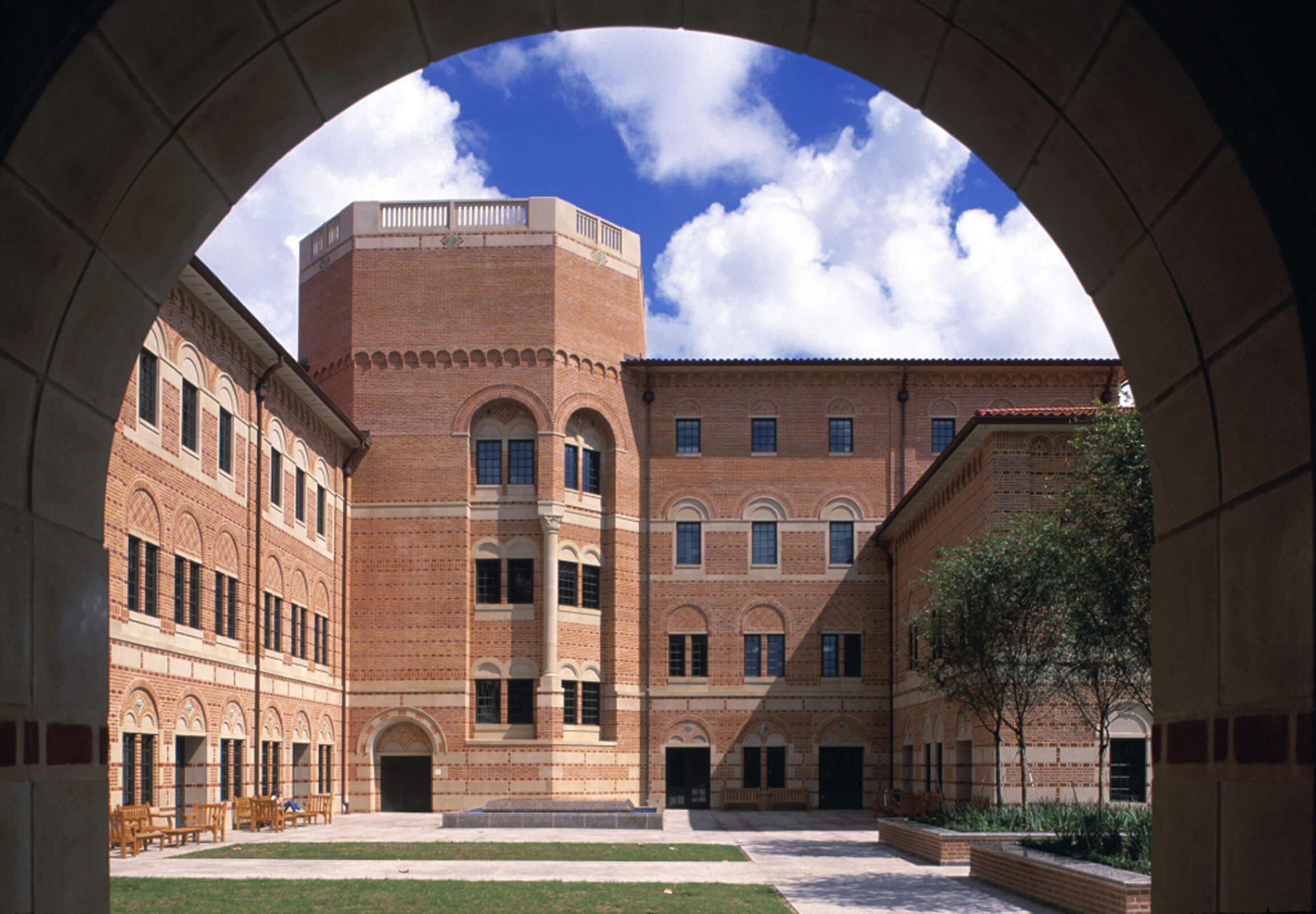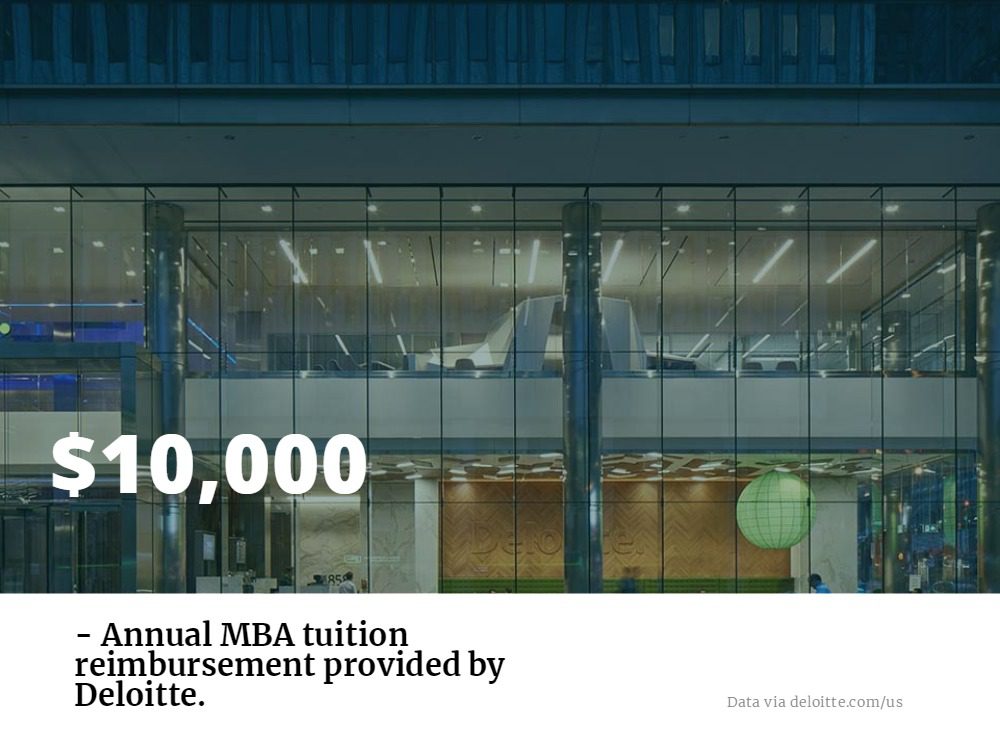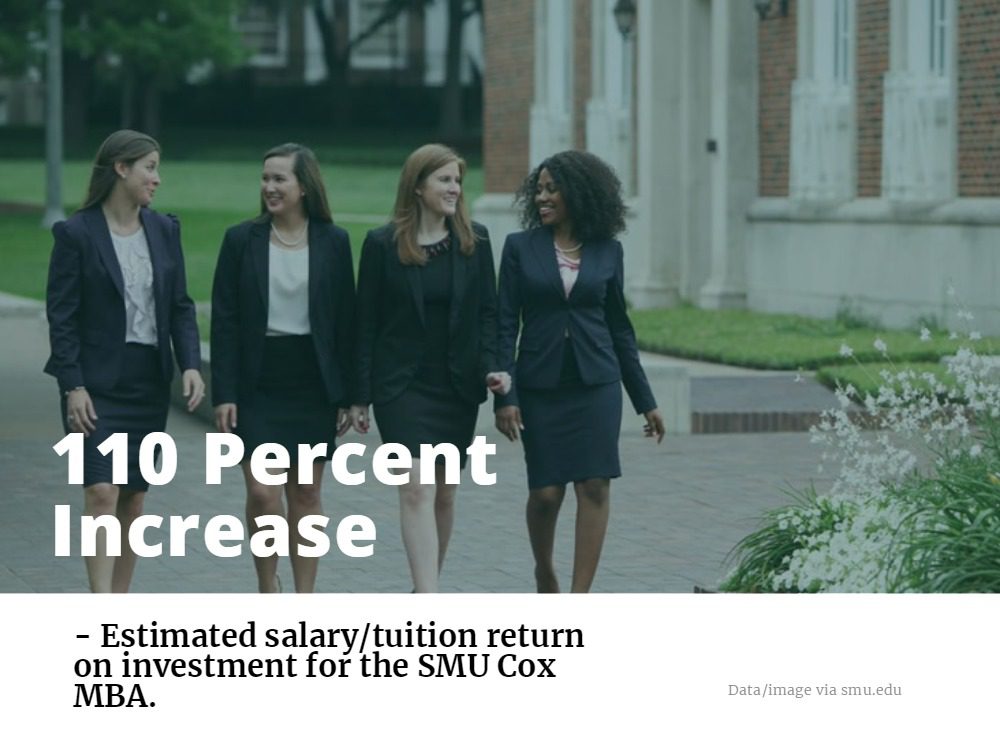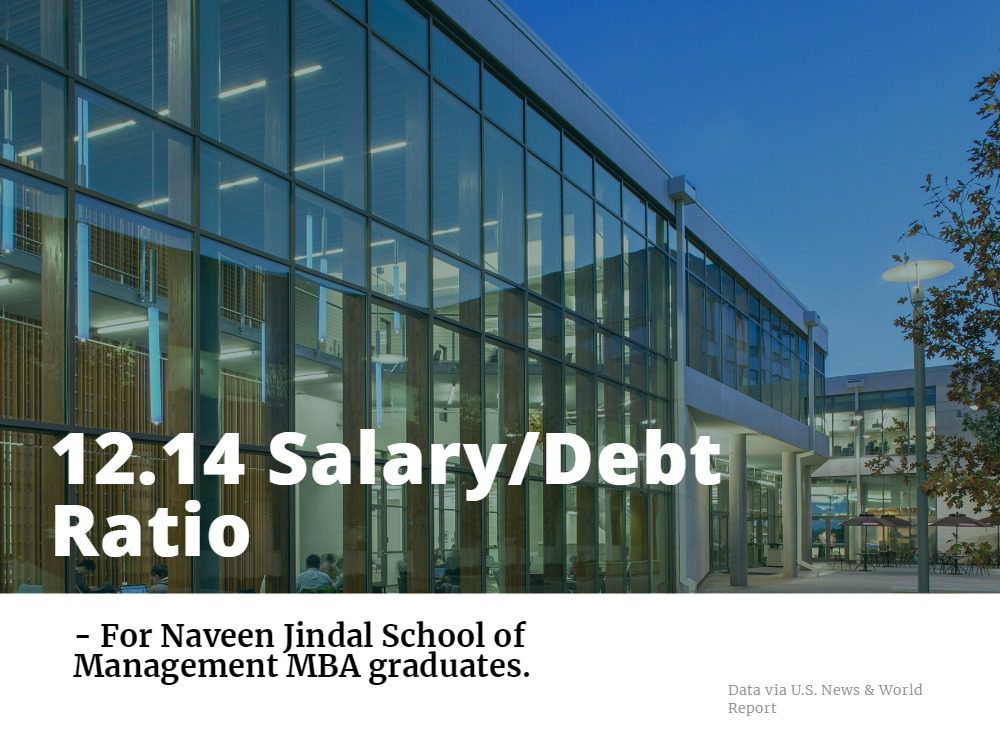The Best Healthcare Management MBAs in Texas

As the nation’s second-largest field of employment, healthcare is a fast growing and rapidly changing industry expected to be worth trillions in the near future. A job in healthcare can represent any number of opportunities from working in a hospital to working for a government agency, insurance organization, consulting firm, group practice, pharmaceutical company, or biotechnology firms. In each of these areas, there’s a massive need for well-qualified individuals who can respond to critical problems. That’s where a healthcare management career can be valuable.
As a healthcare manager, you’ll be responsible for managing and coordinating health services while working closely with physicians and administrators to best represent your facility. It’s a rewarding career field with a positive job outlook—employment is expected to grow much-faster-than-average, according to the Bureau of Labor Statistics.
If this sounds like the career for you, one of the first steps is to earn your Healthcare Management MBA. A Healthcare Management MBA provides students with in-depth expertise on the unique elements required to work in the healthcare industry.
As for where to earn your degree, here are the best Texas healthcare MBA programs.

Dallas
Naveen Jindal School of Management – University of Texas at Dallas
In Dallas, the Naveen Jindal School of Management is known for its healthcare focus. Not only does the school offer a Master of Science in Healthcare Leadership and Management, which is a flexible evening program that can be completed in 18 to 24 months, but MBA students can also choose the Healthcare Leadership and Management concentration. This MBA concentration prepares students for leadership positions in healthcare and is a cross-functional and industry-focused option.
What makes the Healthcare Management MBA concentration stand out at Naveen Jindal is the fact that classes are taught by faculty and healthcare executives who have the specialized expertise and experience needed to train up-and-coming graduates. In addition, students can participate in the Healthcare Management Association (HMA) to cultivate industry experience, networking opportunities, and healthcare resources. The school also offers a Healthcare Management Executive MBA for current physicians who are looking to expand their skillset.
Hankamer School of Business – Baylor University
At the Baylor University Hankamer School of Business in Dallas, there’s a specialized MBA in Healthcare Administration. This degree path is offered in conjunction with the Robbins Institute for Health Policy and Leadership and gives students the opportunity to gain an interdisciplinary foundation in health services and business. The MBA program is nationally recognized, ranked 17th in the nation in 2016 by the U.S. News & World Report, and ideal for students interested in a healthcare career.
What makes this MBA program unique is that it includes a seven-month paid Executive Residency with a leading progressive health organization. During this residency, students receive guidance from well-qualified, practicing healthcare executives who give them the opportunity to apply and test their knowledge. Also, students can apply for the Executive Healthcare MBA program in Dallas and participate in the Future Healthcare Executives (FHE) student organization.
Neeley School of Business – Texas Christian University
Another opportunity for healthcare-minded MBA students in Dallas is the Healthcare MBA at the TCU Neeley School of Business. This program is designed for current healthcare professionals or individuals who are looking to enter the healthcare industry. It’s offered in partnership with the University of North Texas—Health Science Center and provides an in-depth healthcare focus.
What makes this program unusual is that students can choose a standard MBA (48 credit-hours) or an accelerated MBA (36 credit-hours) depending on their experience in business. In either case, MBA students completed 10.5 credit-hours of healthcare-specific courses as well as 9-10.5 credit-hours of additional business or healthcare electives. Some of the specialized courses include:
- Healthcare in the U.S.
- Population Health
- Legal Aspects of Healthcare
Houston
Rice University – Jones Graduate School of Business
At Rice University in Houston, there are multiple opportunities for MBA students at the Jones Graduate School of Business to develop their healthcare experience. Specifically, the school created a healthcare program that offers practical learning options and multiple healthcare electives. Some of those electives include U.S. Health Care Management, Health Care Strategy, and Health Care Operations Management.
As full-time MBA students, there’s the option to choose the health care concentration, which includes 12 credits, out of 24.5 available, focused specifically on a career in healthcare. Its unique curriculum prepares MBA students for a variety of healthcare settings including pharmaceutical, biotech, and insurance as well as hospitals and private practices. There are also many other ways to learn about healthcare at Rice University including speaker series, panel discussions, and multiple events.

The Jones Graduate School of Business at Rice University offers a wealth of healthcare MBA options, including a MD/MBA dual degree.
Cameron School of Business – University of St. Thomas
In Houston, there’s also an MBA in Health Care Administration offered at the Cameron School of Business. This program is offered in conjunction with Texas Woman’s University (TWU) and gives students the opportunity to obtain the fundamental health services management skills required for a successful career. In addition, there’s an opportunity for a dual Master of Healthcare Administration (MHA) and MBA degree. As part of the program, students take courses at both TWU and UST.
Babson Entrepreneurship Stays at #1 for 25 Consecutive Years

For the 25th year in a row, U.S. News & World Report ranked Babson College’s F.W. Olin Graduate School of Business as the number one program for entrepreneurship in the United States. Entrepreneurship is an indelible part of the business school and MBA program, found within the curriculum, faculty, clubs, centers, and more.
Babson’s Entrepreneurship Curriculum
At Babson, the 50-plus faculty members and 30 adjunct entrepreneurs—the largest dedicated entrepreneurship faculty in the world—come together to teach Entrepreneurial Thought & Action®. This methodology is a way to balance action, experimentation, and creativity with business fundamentals. The goal is to empower students to take action on social, economic, and environmental issues to create value. Students are taught to apply ET&A™ in everything from large corporations to running a charity, solving social issues, and starting a business.
In addition, at Babson, there’s the idea that “we are all entrepreneurs,” which falls under the Entrepreneurship of All Kinds® heading. This concept re-imagines entrepreneurship to include all brilliant improvisers, not just startups, venture capital firms, and business incubators. It looks at how every organization can use entrepreneurship to creatively solve problems and adapt to change.
Both ET&ATM and Entrepreneurship of All Kinds® are interwoven into the very fabric of Babson, being taught in every classroom and every topic.
Babson’s Entrepreneurship Focus
Outside of the curriculum and academic philosophy of Babson, entrepreneurship can be found in dedicated centers and other resources. For example, the school is home to the Arthur M. Blank Center for Entrepreneurship, which helps to accelerate the practice of entrepreneurship through mentoring, competitions, events, workshops, and more. This Center is the hub of the entrepreneurial ecosystem.
There’s also the John E. and Alice L. Butler Launch Pad, which hosts two signature entrepreneurship events every year: the Rocket Pitch and B.E.T.A. Challenge both of which bring together students and alumni to compete in business innovation. The Launch Pad is also responsible for the Summer Venture Program, which accelerates the top 15 student ventures at Babson each year.
To gain more in-depth insight into Babson’s entrepreneurial focus, we had the opportunity to interview Keith Rollag, the Dean-Elect of the Graduate School (starting July 1). He was able to talk to us about how Babson has been able to stay as the number one program for entrepreneurship for 25 years as well as what that looks like at the university.
-
How has the Babson MBA managed to maintain the #1 entrepreneurial slot for so long?
There are several reasons; some of it comes from our first-mover advantage. We taught our first course in entrepreneurship in 1967, and created the Center for Entrepreneurial Studies in the 1970’s at a time when entrepreneurship wasn’t really accepted as a separate business discipline. We started the Babson Entrepreneurship Research Conference in 1981 (which continues to be one of the premier conferences for entrepreneurship) and the Price-Babson Symposium for Entrepreneurship Education in 1984, which over the years has taught almost 5000 educators from over 1000 institutions and 80-plus countries how to teach entrepreneurship.
But our #1 ranking is also due to the creation of a Babson community, culture, and curriculum that is built around entrepreneurship. Entrepreneurship has been an important part of our curriculum since the 1980’s, and we’ve built what we think is the largest entrepreneurship department in the world with over 50 full-time and adjunct faculty members.
Entrepreneurship has been a part of our Babson DNA for decades, and we live it as well as teach it. We are constantly updating our curricula, trying new things, building new partnerships, and exploring new opportunities. The term Entrepreneurial Thought and Action is the latest embodiment of this spirit, and it aptly implies the energy and enthusiasm that is an integral part of Babson.
-
Why do you feel that Entrepreneurial Thought & Action is vital to an MBA education?
At its core, Entrepreneurial Thought and Action is all about rapid learning, and in today’s dynamic world of uncertainty, whoever learns fastest wins. We teach our students to know when to learn quickly through analyzing, strategizing, and planning, and when to learn quickly through prototyping, experimenting, interacting with customers. Both are critical for success, but our education and reward systems tend to favor thinking and discussing over acting. We know from the habits of successful entrepreneurs that in times of high uncertainty, action (and the learning that comes from it) is the best way to solve problems and take advantage of emerging opportunities.
In our Babson MBA programs, we help students develop both a mindset and habit of learning through action. This is valuable whether you are trying to lead innovation within large corporations, grow and expand small and medium-size businesses, create new ventures, or simply find new ways to address complex-but-important problems facing communities, regions, and the world.
Learning quickly is a skill that will always be valued by organizations. While markets, technologies, structures, and roles may change, the need for a manager to learn quickly will never go away.
-
What aspect of your entrepreneurship studies/opportunities/focuses would you like to highlight?
We do many things under the broad heading of “entrepreneurship of all kinds.” Students have the opportunity to participate in intensity tracks around entrepreneurship (where they can build their venture while they are getting an MBA), women-led entrepreneurship, social innovation, and technology development. We also have the Butler Launch Pad as well as our highly competitive Summer Venture Program that helps start dozens of ventures (both business and social-focused). And our MBA students have several clubs focused on regional entrepreneurship and host well-attended conferences on United States, Asian, Indian, and Latin American entrepreneurship.
Whether one is considering starting a company or looking to lead ventures within larger organizations, or just wanting to maximize their impact on the world, an entrepreneurial, can-do, action-oriented mindset primes everyone for success.
What Are The 5 Highest Paying Consulting Firms in the World?

“Is this going to be worth it?”
If you are currently or have ever considered earning an MBA degree, it’s likely that you’ve asked yourself this question. Given the burgeoning cost of tuition—especially for top business programs—plus the loss in income and cost of living while pursuing your education, it’s a fair question to ask. Does it make sense to invest this sort of money into your education with no guaranteed result?
Of course, many of the benefits of earning an MBA simply can’t be quantified and boiled down to raw numbers. The new opportunities created through study abroad or case competitions, the expansion of your professional network and chance to connect with industry professionals. All of these considerations can make it difficult to ever truly gain perspective on an MBA degree’s worth.
Thankfully, there are some areas where the numbers still do the talking. In particular: post-graduate salary. This is one of the easiest and simplest ways to see the true value of an MBA. And it’s not just helpful to look at the increase in salary after earning an MBA—it can be just as enlightening to see the difference in post-graduate salary for various MBA concentrations. This data can help you make important choices about what kind of path you’d like to pursue while earning your MBA, and how to make the most out of the time and money spent on your education.
U.S. News & World Report found found that strategy, while one of the least popular MBA concentrations (chosen by just 4.3 percent of business school students), led to some of the highest paying jobs after graduation. Since students concentrating in strategy typically go into jobs at consulting firms following graduation, they are more likely to earn high salaries that can help increase the overall value of their degree—not to mention pay off their student loans much faster.
For students looking to increase the worth of their MBA with a high-paying job in consulting, we’ve rounded up the highest paying firms in the consulting industry. Working towards careers in these top companies will guarantee that the answer to “is this going to be worth it?” will always be “yes!”
The 5 Highest Paying Consulting Firms

Formerly known as Ernst & Young, EY-Parthenon is one of the top paying consulting firms for MBA graduates. The company is headquartered in London, England, with more than 250,000 employees at offices throughout the world. EY is known as one of the “Big Four” accounting firms, joining Deloitte, PwC, and KPMG as the four largest professional services networks in the world. Last year, EY was also named 29th on the “100 Best Companies to Work For” list from Fortune.
According to Business Insider, EY-Parthenon employees with just an undergraduate degree make up to, on average, $110,000 annually, including base salary, signing bonuses, and extra incentives. Management Consulted data found that MBA grads earned an astounding base salary of $170,000 at the company. That figure doesn’t include signing bonuses, relocation expenses, and more.

Founded in 1926 by University of Chicago economics professor James McKinsey, McKinsey & Company has transformed into one of the world’s most iconic consulting empires. The company has opened in more than 120 global cities, employing more than 14,000 consultants—many of which comes from prestigious MBA institutions.
According to Management Consulted data, McKinsey & Company is the second-highest paying consulting firm in the world for MBA grads, with offered base salaries coming in at $152,000. With an added potential performance bonus of $35,000, those figures can rise to $187,500 in just one year.

Strategy& has grown exceedingly since its beginnings as Booz & Company in 1914. One of the top global strategy consulting firms in the country, the company now has 57 offices throughout the world, revenue upwards of $1.3 billion, and 3,000 employees. Nearly a century after their founding, in 2013, the company was acquired by PricewaterhouseCoopers (PwC) and officially renamed to Strategy&.
The company comes in third overall among for annual base compensation for MBA grads, at a lofty $152,000. The company also offers one of the most unique and lucrative retirement funding options for consulting employees, with 6 percent of base salary and bonuses matched for its 401k plan.

L.E.K. is technically the youngest company to make the top five, which was founded in the early 1980s by former Bain partners James Lawrence, Iain Evans, and Richard Koch. Headquartered in both Boston and London, L.E.K. is also the smallest company on this list, with around 3,000 employees.
Despite its size and relative newness in comparison to many of the other companies on this list, L.E.K. pays its employees more-than-handsomely, offering a tempting base salary of $150,000 and upwards of $25,000 in performance-based potential incentives.

Bain & Company, headquartered in Boston, Massachusetts, is a global management consultancy firm providing advice for public, private, and non-profit organizations. Along with the Boston Consulting Group and McKinsey & Company, Bain & Company is one of the “Big Three” firms. Founded in 1973, Bain & Co. today has more than 8,000 employees throughout the world and an estimated revenue between $3.7 and $4.5 billion.
Bain offers its recently employed MBA grads a starting base salary comes in slightly above aforementioned Deloitte employees, snagging $148,000 per year, which can grow to $185,000 in total compensation.
Honorable Mentions

The Boston Consulting Group, founded in 1963, now has more than 90 offices in 50 countries, advising clients throughout the private, public, and not-profit sectors.
The Massachusetts institution offers its MBA graduates right around the same compensation as Bain & Co, the companies unofficial direct competitor. Base salaries come in around $147,000, but massive (and we mean massive) bonus incentives can bring that total up to $191,100.

Another one of the “Big Four,” Deloitte has witnessed non-stop growth since its founding in 1845. Today, the firm makes more than $38.8 billion USD in revenue with roughly 263,900 employees throughout the world. As of 2016, Deloitte was ranked as the sixth largest privately owned organization in the U.S. The firm’s offerings span across audit, tax, consulting, financial advisory, and enterprise risk services, with offices across the world in cities like Los Angeles, Tokyo, Madrid, Tel Aviv, and many more.
Management Consulted data found that MBA grads at Deloitte reported a base salary slightly smaller than its aforementioned contemporaries, pulling in $140,000 per year. Deloitte separates itself from its competition by offering returning interns a potential to pay for the send year of their MBA education in the form of reimbursement.
How to Get Your Employer to Pay For Your MBA

Earning an MBA holds tons of value in the business world—an advanced business degree can open doors that may otherwise have been closed, and boasts a high return on investment thanks to the top-level salaries that MBAs command.
Graduate school—and all of the coursework that comes with it—can be an intimidating challenge, but paying for it doesn’t have to be. Aside from scholarship, grant and fellowship opportunities at business schools across the country, more and more companies are placing a higher importance on tuition reimbursement programs, and expanding opportunities for paid MBA tuition reimbursement.
How can you get your employer to pay for your MBA studies? Let’s take a closer look.
Getting Your Employer to Pay For Your MBA
First thing’s first: You need to find out if your current employer offers tuition reimbursement to its employees. The terms of reimbursement vary depending on the company, with some corporations not offering any sort of program at all. Those that do offer some sort of compensation may do so on a course-by-course basis, or as a lump-sum reimbursement package for coursework in relevant degree plans.
“Organizations typically support MBA pursuits for two reasons,” J. Todd Rhoad, managing director of Atlanta’s BT Consulting, told USA Today. “Employee development and succession planning. In the first case, companies support the cost of MBA programs as part of their commitment to employee training and development.”
If you want to convince your employer that your education is worth investing in, you’ll need to show that earning an MBA will further your business acumen and understanding of your industry, and ultimately help your company reap those benefits.
“Usually, an employee has to already been delivering great results within the company,” Roderick Lewis, international relations director at the ISCTE Business School, University Institute of Lisbon, told Business Insider.
“If you haven’t already convinced your company, then asking them to [sponsor your education] becomes really difficult,” Lewis says.
USA Today also outlined a few checkboxes to hit when determining how valuable earning an MBA would be for your organization:
- Do current members of middle or upper management hold advanced business degrees?
- Does your company have the available revenue to invest in employee education?
- Would someone with the type of advanced training you seek bring clear advantages to the company?
If those point hold true in your situation, then start researching which programs specialize in providing the skills that your company needs. Keep in mind: You do not have to limit yourself to business schools in your metro thanks to popularity of Online MBA programs. There may have once been a stigma against online programs, but the of the matter fact is that many of the top online MBAs on U.S. News & World Report’s annual rankings also rank highly on the publication’s top campus-based graduate business programs list.
Some of these schools include:
- University of North Carolina – Chapel Hill (Kenan-Flagler)
- Indiana University – Bloomington (Kelley)
- Temple University (Fox)
- Arizona State University (Carey)
- University of Florida (Hough)
- Carnegie Mellon University (Tepper)
- University of Texas – Dallas
Once you’ve found the right program, you’ll want to craft a brief proposal for your employer. In it, you’ll want to mention how you fit the company’s tuition reimbursement policy, and list the advantages that continuing your education can bring you and your company. Don’t shy away from providing data on how much assistance you may need and how this investment will pay off for everyone, while also ensuring your employer that you’ll remain committed to the company during your degree program, or won’t jump ship after earning your degree.
“A proposal should address the benefit to the company,” Rhoad says, “(including) areas where the company could improve and how you will help them, a review of the courses to be taken and how they will provide knowledge that can help improve the company’s performance.”
Companies That Provide MBA Tuition Reimbursement
Investopedia recently compiled a list of companies have stated that they place a high value on their tuition assistance benefits, and provide tuition reimbursement for the educational costs of an MBA.
According to Investopedia, consulting companies lead the market in tuition reimbursement programs for MBA courses. These firms also pay the highest salaries for MBA alumni. Deloitte has the most robust tuition reimbursement plan, providing employees with up to $10,000 per year in MBA reimbursements. The firm requires two years of work with the company and a commitment to work for the company after graduation in order to receive the tuition assistance benefit.

Financial institutions and banks also place a high value on employees with MBAs, and provide tuition assistance. One example is Bank of America, which provides employees with annual tuition assistance of up to $5,250 for advanced degree coursework. Wells Fargo also has a track record of paying for MBAs, doling out up to $5,000 annually for tuition expenses.
The booming tech sector is also hiring MBAs left and right, with some firms developing their MBA talent in house by offering to pay MBA tuition expenses. Apple tops the list of tech companies offering tuition assistance, providing reimbursement of up to $5,000 annually. MBA degrees are even more coveted in the the specialty defense technology sector, as Raytheon, one of the top defense technology companies in the world, offering to pay up to 100 percent of employees’ college tuition for graduate school.
Other leading companies offering tuition reimbursement to employees include:
- Chevron: A market leader in the energy sector, Chevron offers offers tuition reimbursement of up to 75 percent for its employees.
Ford: Ford’s education tuition assistance program provides employees with tuition reimbursement of up to $5,000 annually for an MBA. - Procter & Gamble: This firm has one of the leading tuition reimbursement benefits in the consumer goods industry, providing reimbursement for up to 80 percent of educational costs with a limit at $40,000.
- AT&T: This telecom giant provides employees with up to $5,250 annually for tuition assistance, for a maximum reimbursement of up to $25,000 for graduate school courses.
Finding the Best Return On Investment for Your MBA: Dallas

Choosing the right MBA program can feel overwhelming. With nearly 800 accredited business schools in the United States, the idea of wading through the information on every program is intimidating to say the least. A variety of features, such as a school rankings, internship opportunities, and an extensive alumni network may be huge factors where you choose to earn your master’s. But one of the most important variables to consider is a program’s return on investment (ROI). It is essential to pick a school with an enviable ROI, as this will ensure that the time and money you dedicate to earning your MBA are not for naught. Given the considerable cost of higher education, it is important to attend the school that will give you the most bang for your buck.
The Best Dallas MBA Return on Investment
Cox School of Business – Southern Methodist University
At the SMU Cox School of Business, students can expect an admirable rate of return on the cost of education. The tuition rate of $45,976 per year for the two-year program is among the most enviable in the U.S. The average graduating salary for MBA’s was $96,587, which is more than double the yearly cost of tuition. This school is also ideal for students hoping to global perspective, as students at Cox have the opportunity to participate in an international MBA exchange program, which allows them to continue their education in Latin America, Europe, Australia, or Asia. Simply put, SMU Cox doesn’t just provide one of the best Dallas MBA return on investment opportunities, but one of the best in the country overall.

Hankamer School of Business – Baylor University
Baylor’s Hanker School of Business is another excellent option for students seeking a respectable ROI. The full-time program can span from 16 to 21 months, with a tuition of $20,597 per semester (over about three to four semesters, depending on course load and core requirements met during undergrad). According to Hankamer’s website, the average starting salary for MBA graduates in 2017 was $73,314. Additionally, Hankamer’s Career Management team is nationally-ranked, and can provide extra support for students seeking help with job placement.
McCombs School of Business – University of Texas at Austin
The MBA program at the McCombs School of Business currently costs $30,750 per semester, bringing the total tuition to about $123,000. The cost will is steeper for non-residents (closer to $189,000). Though the cost of tuition at McCombs is nothing to sneer at, neither is the reward. In fact, the most recent MBA class had an impressive average starting salary of $117,068. McCombs, which is also one of the largest business schools on this list, also has an extensive alumni network, which includes the CEOs of Southwest Airlines (Gary C. Kelly) and Heinz (William R. Johnson).
Naveen Jindal School of Management – University of Texas at Dallas
Like many of the schools we mentioned on this list, the Naveen Jindal School of Management has a solid track record when it comes to ROI. Tuition for the full-time MBA program is just $32,998 for in-state residents and $64,332 for non-residents. In addition to the reasonable cost, the school’s website states that 80 percent of students receive scholarships that cover an average of 45 percent of the total program cost. In 2017, U.S. News & World Report stated that the school’s MBA program, “… had the highest salary-to-debt ratio among ranked business schools.” According to the article, average starting salary for graduates (of those who were employed within three months of graduation) was $86,644.

Neeley School of Business – Texas Christian University
At TCU’s Neeley School of Business, the average starting salary for the most recent graduates of the full-time MBA program was $93,093, surpassing the total tuition of $88,020. Moreover, Neeley boasts a 92 percent employment rate 90 days after graduation. Recent graduates have taken jobs at renowned companies like Ernst & Young and IBM. In addition to standard core classes, Neeley introduces a great deal of experiential learning into the curriculum. At the end of their first year, students participate in an Integrative Project that offers them the opportunity to apply their skills to real-world business obstacles via a week-long simulation.
Comparing The U.S. News Full-Time and Online MBA Rankings

When it comes to business school rankings, U.S. News & World Report issues one of the most comprehensive annual lists. The annual rankings includes separate lists for the “Best Business Schools” and the “Best Online MBA Programs,” but deciding which format is right for you can still be tricky. Continue reading…
